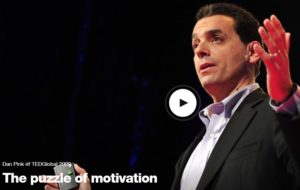 Sadly, here’s an example of a common American white-collar work week:
Sadly, here’s an example of a common American white-collar work week:
- Monday:
- 7:00am: Pour morning coffee, check work email
- 7:30am: Battle commute to work
- 8:30am: Show up, sit at desk
- 10:30am: Use bathroom, maybe
- 12:00pm: Open lunch, eat at desk
- 1:00pm: Pour afternoon coffee, to avoid falling asleep
- 3:00pm: Use bathroom again, maybe
- 5:30pm: Leave office, battle commute home
- Tuesday:
- 7:00am: Pour morning coffee, check work email
- …
You get the idea. For many jobs, a routine and completely stationary day are the standard quo. That’s fine for executing routine tasks, being a certain type of productive, and being available should — *gasp* — your boss email you and need something. But how does it work when you’re trying to free your brain and think creatively? Answer: it fails miserably.
Routine and lack of movement are terrible for generating new ideas. They may be good for making non-creative progress, moving along the status quo, making consistent progress every day. But for generating new ideas, routine and stationary days are killer.
Here’s an example on the effects of brain states on creativity: Dan Pink, author of numerous books including “Whole New Mind: Why Right-Brainers Will Rule the World“, shared a story in his Ted Talk titled The Puzzle of Motivation about participants in an experiment taking longer to solve a creative problem when rewards are directly linked to the outcome — in other words, you can reduce creativity with a reward systems that discourage creative brain states:
The key is to overcome what’s called functional fixedness. You look at that box and you see it only as a receptacle for the tacks. But it can also have this other function, as a platform for the candle. The candle problem.
…
If you want people to perform better, you reward them. Right? Bonuses, commissions, their own reality show. Incentivize them. That’s how business works. But that’s not happening here. You’ve got an incentive designed to sharpen thinking and accelerate creativity, and it does just the opposite. It dulls thinking and blocks creativity.
While Dan Pink is focused on reward systems (i.e., how should we incentivize our employees), the point is the same: your environment and subsequent brain state have a huge impact on whether your brain can generate creative ideas.
To be creative, you need to free your brain. What does this mean? You need to free your brain from the shackles of routine and put yourself in new environments to make your brain work hard and more creatively. Here are some specific tactics you can use:
- Go for a walk. Get up from your desk and take a walk to think. Don’t bring your mobile device. Don’t bring your phone. Bring a friend for a brainstorming session or simply walk alone. Moving your body makes your brain get out of its routine and process the challenging problems you face. A number of scientific studies have supported the benefits of walking to brain health.
- Divide up your day. We all have periods of our day where we need to simply execute. No need to be super creative, just 4-6 hours of solid progress. But, then we need to spend the other few hours thinking deeply and getting out of our comfort zone. Try this for an alternative day structure:
- 8am – 12pm: Make routine, steady progress on known tasks, try to block out distractions – try to tackle difficult problems where you know you can move things along (writing, coding, research, business development, etc.). For truly routine tasks (data entry, responding to email, organizing), leave those for later in the day when your mind is fried.
- 12pm – 2pm: Eat lunch, schedule meetings, respond to email
- 2pm – 4pm: Go for a walk, sit at a coffee shop, bring your notepad, free your brain to think creatively
- 4pm – 5pm: Take care of routine tasks, plan your next morning to be super productive
- Hit the gym. Set aside 60 minutes of your day to get changed, hit the gym, and shower up. Do this first thing in the morning, or take a break from work and do it in the afternoon. Your brain will keep working while your body gets its exercise. Bring a notepad to record any ideas.
- Sleep. Make sure you’re getting enough sleep at night. Resting your brain and allowing it to work is one of the strongest factors in next-day creativity. The notion that your brain keeps working while you are sleeping is absolutely true! This means at least 6 hours but ideally 7-9 hours if you can.\
- Go to an event. Attend an event that is not part of your typical day. See a speaker on a topic you’re interested in. Force yourself to network and speak with others. You’ll find that new ideas come to you when you put your brain out of its comfort zone
- Devour information from a variety of sources. Your brain can’t be creative if you don’t constantly feed it with new ideas and information. Listen to podcasts, read regularly, think outside your career. This is critical for your brain’s ability to make connections across topics.
So break your routine and free your brain. The productivity and idea generation benefits are enormous.
Originally published: August 2016. Republished: February 2018.